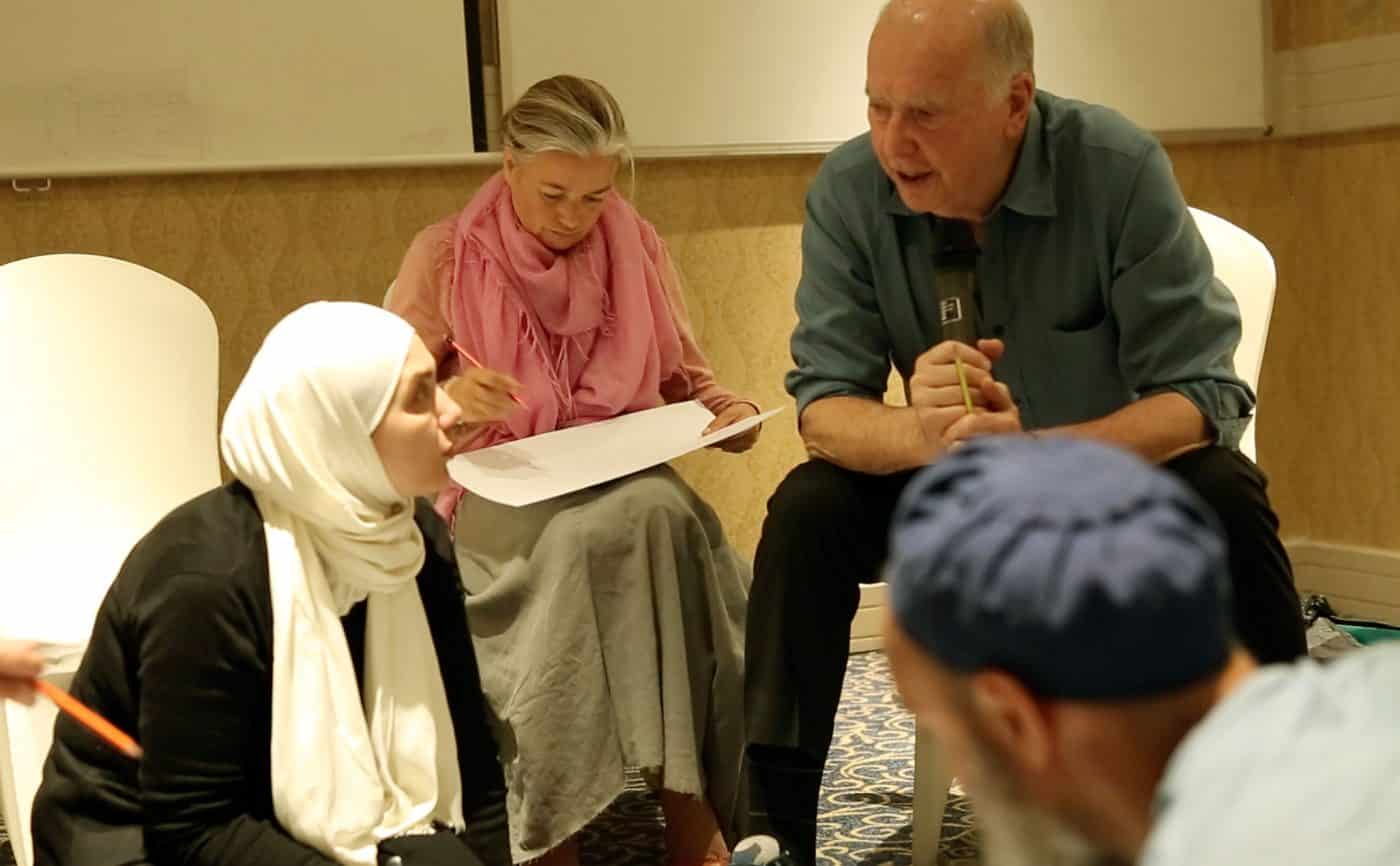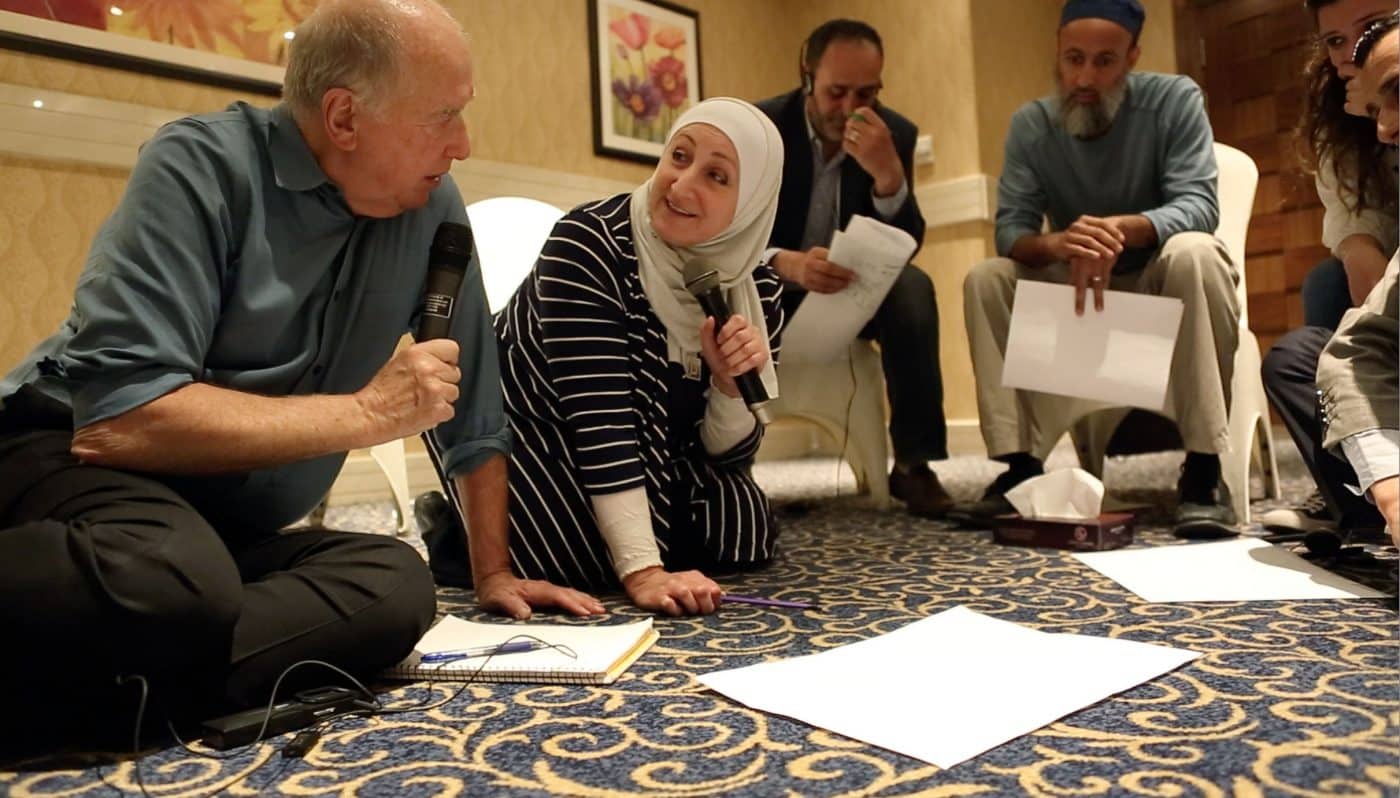On the third day, we do genograms, family trees, and share them. We’re looking not only for patterns of disease and distress, as mental health professionals usually do, but also for strengths that can sustain us, for ancestors and contemporaries who can inspire us to deal with present challenges.

The Syrian refugee sees himself getting wise counsel from his mother and her family, taking on the role of family leader, growing more patient with the distance from the family in Syria that he cannot overcome. The young Iraqi woman recalls nights of joyous family parties and thinks, for the first time, that she could find that happiness inside herself.
I’m happy for my group members and happy and reassured, too, to remember my own aunts and uncles finding in old age deeper commitment or surprising new talents – Uncle Mac, the grim businessman, at 80, singing in a musical comedy, dancing in a tutu. When we stand at the end of the group, we have our arms around each others’ shoulders; we open our eyes, and cry or laugh or cry and laugh.

Part 5: In the Home of Syrian Refugees


